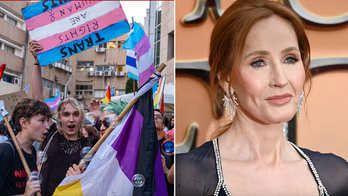BBC Scotland issued a correction to an article that inaccurately reported on the Scotland Hate Crime and Public Order Act 2021, prompting discussions about editorial accountability and misreporting on sensitive social issues.

A recent report by BBC Scotland inaccurately suggested that J.K. Rowling's comments about transgender women could constitute a criminal offense under Scotland's new hate crime law. The BBC subsequently issued a correction acknowledging the inaccuracy.
The original article, published on April 2, stated that "derogatory comments" about transgender identity would become a criminal offense under the Hate Crime and Public Order Act 2021. Rowling, a vocal critic of transgender ideology, had earlier expressed concerns about the law's potential implications for women's rights.
The BBC's correction clarified that the law does not criminalize derogatory comments but instead prohibits threatening or abusive behavior with the intent to "stir up hatred" based on protected characteristics, including transgender identity. The BBC apologized for the confusion caused and emphasized the importance of accuracy in its reporting.
The initial misreport drew criticism from various quarters, including Rowling herself. The author called the original article "inaccurate" and a "smear," expressing concerns about potential censorship and the erosion of free speech.
Fox News contributor Joe Concha argued that the editor responsible for the false reporting should be fired for compromising the BBC's credibility. He maintained that the BBC had a responsibility to ensure accuracy in its coverage, especially on sensitive social issues.
The BBC declined to comment beyond its public statement, which acknowledged the inaccuracy and expressed regret. The incident highlights the challenges faced by media organizations in reporting complex social and legal issues, particularly when political sensitivities are involved.
In response to the controversy, Rowling has continued to voice her concerns about the Hate Crime and Public Order Act 2021. She has criticized the law for potentially prioritizing the feelings of individuals performing a certain gender identity over the rights and freedoms of women.
The BBC's initial misreport has also sparked wider debates about the role of the media in shaping public discourse and the importance of accuracy and impartiality in reporting. Critics argue that the BBC, as a public broadcaster, has a duty to provide unbiased and fact-based information, and that the false reporting on the hate crime law undermines public trust.
The incident underscores the need for media organizations to exercise due diligence in verifying information and ensuring the accuracy of their reporting, particularly when dealing with sensitive and controversial subjects.










